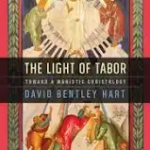A few weeks back, I published a brief essay on Protestantism and sacraments on the Patheos site. Some of my friends have clamored for clarifications. Hence this post. My claim was that Protestantism cannot achieve its pastoral aims without high view of the efficacy of sacraments. I focused on baptism. Protestantism broke out with promises of assurance: Sinners with tortured consciences could never find peace under the medieval system; but the recovery of the Pauline doctrine of justification by faith alone... Read more













